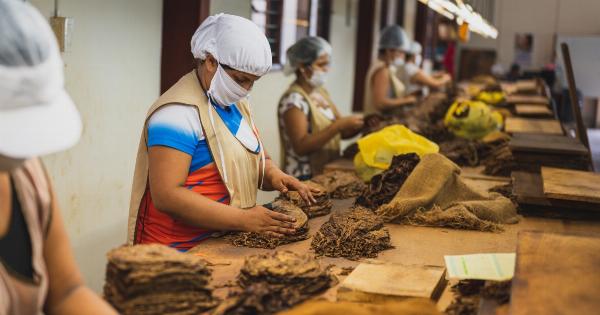Rare diseases, also known as orphan diseases, are medical conditions that affect a small percentage of the population. These conditions are usually chronic, progressive, and have life-threatening consequences.
Although they individually affect a small number of people, collectively, rare diseases impact millions worldwide.
The Importance of World Rare Disease Day
World Rare Disease Day (WRDD) is observed on the last day of February each year. The day aims to raise awareness about rare diseases and improve access to treatment and support for individuals and families affected by these conditions.
It is a global initiative that unites patient organizations, healthcare professionals, researchers, policymakers, and the general public in advocating for better understanding and care for rare disease patients.
Walking in Each Other’s Shoes
The theme for World Rare Disease Day 2022 is “Walking in Each Other’s Shoes.” This theme emphasizes the need to foster empathy and understanding among all stakeholders involved in the rare disease community.
By stepping into the shoes of those living with rare diseases, we can gain valuable insights into their experiences, challenges, and needs.
Creating Awareness and Promoting Advocacy
One of the primary objectives of World Rare Disease Day is to create widespread awareness about rare diseases.
Through various awareness-raising activities, campaigners seek to educate the general public, healthcare professionals, and policymakers about the existence and impact of rare diseases.
Awareness campaigns often take the form of social media campaigns, public events, educational seminars, and community outreach programs.
These activities help to dispel myths and misconceptions surrounding rare diseases, reduce stigma, and demonstrate the urgent need for improved care and support systems.
Empowering Rare Disease Patients and Families
World Rare Disease Day empowers rare disease patients and their families by providing them with a platform to share their stories and advocate for their rights.
By amplifying their voices, WRDD aims to highlight the challenges they face and push for policies and initiatives that can improve their quality of life.
Patient organizations and support groups play a crucial role in empowering rare disease patients and families. They provide information, emotional support, and a sense of community for individuals navigating the complexities of their rare conditions.
World Rare Disease Day often collaborates with these organizations to promote patient empowerment and ensure their needs are at the forefront of policy discussions.
Advancements in Rare Disease Research
An essential aspect of combating rare diseases is advancing research and innovation in the field.
World Rare Disease Day recognizes the critical role that research plays in understanding rare diseases, developing new treatments, and improving overall patient outcomes.
Researchers around the world dedicate their efforts to unraveling the mysteries of rare diseases and finding potential therapeutic interventions.
World Rare Disease Day provides a platform for researchers to present their findings, engage in knowledge sharing, and collaborate with peers and relevant stakeholders.
Breaking Down Barriers to Treatment
Access to treatment and care is a significant challenge for individuals living with rare diseases. These conditions often lack specific treatment options, or existing treatments are prohibitively expensive or unavailable in certain regions.
World Rare Disease Day seeks to address these barriers by advocating for universal access to affordable and effective treatments.
By highlighting the gaps in current healthcare systems, policymakers can work towards developing policies that prioritize rare disease patients and ensure their access to life-saving treatments and interventions.
Supporting Rare Disease Research Funding
Research into rare diseases requires substantial funding to drive advancements. World Rare Disease Day serves as a reminder of the importance of supporting research initiatives through increased funding opportunities.
Advocacy efforts aim to secure funding from both public and private sources to fuel rare disease research.
By channeling resources towards these research projects, we can accelerate the discovery of new treatments and interventions, offering hope and improved outcomes for individuals living with rare diseases.
The Role of Genetic Testing
Genetic testing plays a crucial role in the diagnosis and management of many rare diseases. These tests help identify the underlying genetic mutations responsible for the development of these conditions.
By pinpointing these genetic abnormalities, healthcare professionals can devise personalized treatment plans and offer appropriate genetic counseling.
World Rare Disease Day sheds light on the importance of genetic testing in rare disease diagnosis and treatment.
It emphasizes the need for increased availability and accessibility of genetic testing, especially in regions where access is limited, to ensure early intervention and better outcomes for patients.
Advocacy for Rare Disease Policies
Policies and regulations surrounding rare diseases significantly influence the lives of individuals affected by these conditions.
World Rare Disease Day mobilizes stakeholders to advocate for policy changes that address the unique needs of rare disease patients.
Advocacy efforts focus on issues such as insurance coverage, disability benefits, and incentives for research and development of rare disease therapies.
By pushing for policy reforms, campaigners strive to ensure that rare disease patients receive the support they need, both medically and socially.
Uniting for Change
World Rare Disease Day brings together individuals and organizations from around the world who share a common goal – improving the lives of rare disease patients.
By uniting forces, WRDD creates a sense of solidarity and purpose, enabling stakeholders to advocate effectively for policy changes, research funding, and greater public awareness.
Together, we can break down barriers, foster empathy, drive advancements in research and care, and ultimately create a world where rare disease patients receive the support and treatment they deserve.





























